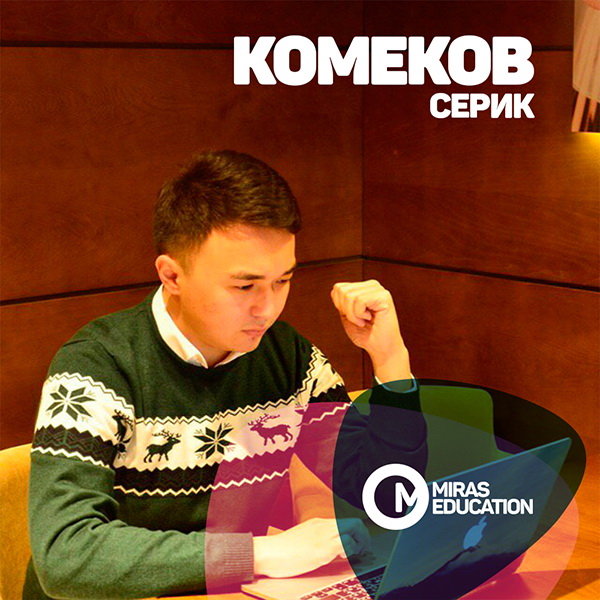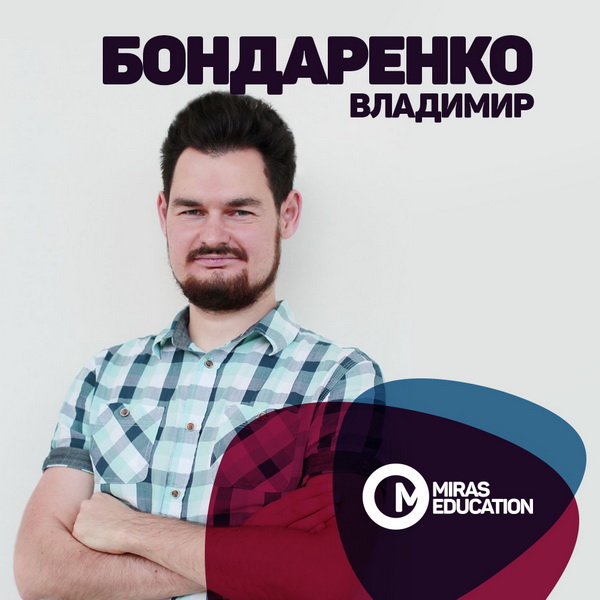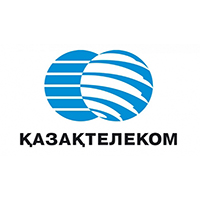The training program 6B06102 – “Programming and Development of Software Packages” is developed for training specialists in computer science and IT technology as part of the training of information and communication technologies.
The goal of the training program 6B06102 - “Programming and Development of Software Packages” is to train highly qualified personnel, provide with qualified professional specialists in the field of IT technologies with practical, communicative and leadership skills that correspond to contemporary requirements to specialists with higher education who are aware of the basics of modern mathematical methods, applied mathematics and computer science methods to solve problems in science, education, technology, economics, management and other areas of the economy, possess programming techniques that can quickly adjust to the dynamic updating in the professional field.
The relevance of the training program 6B06102 - “Programming and Development of Software Packages” implies training of specialists in the field of computer engineering and programming for various structures who have obtained skills to work in the programming environments that are in demand today.
The educational programis designed in such a way that it can be adapted to the individual needs of each individual student within the framework of educational standards.
Features of the educational program:
- A wide range of employment opportunities, well-paid, stable jobs, good career opportunities, as well as the possibility of implementing individual entrepreneurial activities in the field of educational services.
- developed taking into account the strategies and prospects for the development of the IT industry, computer modeling technologies of various industries and science.
- In order to form additional competencies to the profile of training students, Minor programs are being implemented, which are a track of thematically related elective disciplines.
Ensuring connection of the learning process with science development; organization of practice-oriented training;
Develop basic professional competencies among future specialists;
Designing an architecture of components of hardware and software systems, human-machine interface of hardware and software systems;
Ability to create components of computer systems for information processing and management, production of programs and software systems of a given quality; ability to test and debug hardware and software systems; certification of objects of professional activity; training;
Installation, configuration and maintenance of system, tool and application software for computing systems and networks; maintenance of software products of various systems;
Analysis of theoretical and experimental research methods, algorithms, programs, hardware-software complexes and systems;
Creation of prerequisites for independent research and analytical activities of students;
Instilling skills in working with various information, using national and international experience in professional activities, systematizing the information received;
Formation and development of social and personal qualities: determination, industriousness, responsibility, citizenship, tolerance, adherence to ethical standards, the ability to work in a team;
Assistance to graduates of the training program in employment by organizing professional practice.
Mastery of the main categories of dbms, cloud technology, big data management, iot and client-server architecture of computing systems;
Application of modern software products, such as ms sql server, my sql, oracle, android studio;
Ability to test, package, operate and maintain ready-made software products under modern operating systems windows, linux, android and ios;
Programming in javascript, java, php, c, html, css for multifunctional tasks;
Applying software and hardware to develop modern operating systems and other software projects considering the principles of reliability and fault tolerance, designing real-time systems, processing distributed data using parallel computers running windows server, netware operating systems, based on customer / consumer requirements;
Designing algorithms and writing programs according to customer requirements in modern programming languages, such as c #, java, javascript, python, php, providing application functionality under modern operating systems windows, linux, android and ios;
Ability to test, package, operate and maintain ready-made software products under modern operating systems windows, linux, android and ios.
Analytical (analyzes of flows of big data in the field of big data, predicts expected results);
Organizational (organizes the architecture of computer systems and corporate networks, taking into account the requirements);
Production and management (manages and controls processes in production, regulates the progress of industrial processes);
Design (designs and develops a database of software products and computer models according to the terms of reference);
Research (produces research work in the field of education, industry and information and communication technologies).
Secondary comprehensive and specialized schools, colleges, gymnasiums, institutes, universities, education departments and other organizations in the field of education;;
Research institutes and other institutions of various sectors of the economy;
Clinics, rehabilitation, medical centers and other organizations in the field of healthcare;
Financial, credit and insurance institutions; State and local authorities;
Transport, telecommunication companies;
Branches of mechanical engineering, machine tool industry, metallurgical complexes;
Agriculture and services;
National and international companies;
Government bodies at the republican and local levels;
Economic, financial, marketing, industrial, economic and analytical services of organizations of various industries, fields and forms of ownership.
Miras College Institution;
F JSC "Kazteleradio" Turkestan ODRT;
Design and development of Desktop, Mobile and Web applications
Development, management and database management of Oracle and Microsoft SQL Server. 1C Programming
Organization, administration and security of computer systems and networks
Big Data, Data Mining
Author's approaches to multilevel study of foreign languages
Transformation of personal values and personal motivation. Adaptation to Stress and Mediation. Foundation of a healthy lifestyle. Cultural and Spiritual Development
 Komekov Serik
Komekov SerikWEB-programmer, founder of the CodeUp IT school, graduate of the International IT University
 Tulegenova Aigerim
Tulegenova AigerimFellowship Program Bolashak, Master of Science in Information Technology with Merit, the University of Nottingham, UK
 Bondarenko Vladimir
Bondarenko VladimirOver 8 years of experience in the development of WEB solutions. Design and development of a saas product (online service) using highly loaded solutions in the field of logistics and education. Main technology stack: REST, AJAX, PHP, Laravel, PostgreSQL, MySQL, Vue
 Matsaev Nurlan
Matsaev NurlanFull-Stack WEB Developer. PHP, Magento, Laravel, Python, JavaScript, Angular
 Kim Alexander
Kim Alexander1C Certified Accountant Practitioner: 1C Specialist Consultant: ERP Production and Repairs

JSC "Kazakhtelecom"

LLP "Alma-TV"

ShB JSC ‘Transtelecom’
From the 1st year of stujdying to the following organizations:
Information and IT departments of all organizations
Telecommunication companies
Research centers
Education and Health
Banks
Insurance companies
Financial organizations
Government agencies
Oracle Database Administrator — from 1 375 000
to 1 925 000 KZT
.NET Developer — from 1 100 000 to 1 925 000 KZT
Java developer — up to 1 350 000 KZT
PHP programmer — up to 1 350 000 KZT
Programmer developer — from 1 100 000 to 1 260 000 KZT
Web Designer — from 1 100 000 KZT
Senior Frontend Developer — from 945 000 KZT
Zhuzhoev Osman. Android middle developer "Tredo" LLP
Shavkatov Diyar. Web programmer of "Eureka" LLP
Absadyk Bagdoulet. Programmer at "Republic boutique" LLP
Dauletov Kaltai. Department of Justice, System Administrator Zhaldybayev Salamat Muratovich, JSC "RTRK" Kazakhstan"
Taiman Abai. Programmer at Department of Internal Affaiers, South Kazakhstan
Marat Tukibayev. JSC "Airport Shymkent", engineer-electronics GPO
Kapkaev Damir. Joint-stock company "Kaspi Bank", Engineer of IT services support
Ustyuzhanin Anton. Copyright certificate of the Ministry of Justice of the Republic of Kazakhstan (No. 0678 dated 04/14/16) for the development of the software product "Automated system for managing an educational process at a higher educational institution"
Bakhshiev Ibrahim. Silver medal at the II regional start-up project competition "My own business 2017", "Game server hosting"
Skripkin Mikhail. 2nd prize in the competition of scientific projects "Science", Astana, with the project "Development of mobile applications for transport services"
| Name of disciplines | Cycle of disciplines | ECTS | Brief description of the disciplines |
| Kazakh (Russian) Language | GED | 5 | Issues under study: phonetic features, grammatical structure of the Kazakh language; basic vocabulary by fields of application (household, terminological, general scientific, business); methods of word formation, phraseological units; rules of translation technique; rules of spelling and punctuation; culture and traditions of Kazakhstan; rules of speech etiquette; rules of communicative behavior in situations of everyday, business, scientific and professional communication.Formed competencies: implementation of oral communication in dialogical and monological forms in situations of everyday, scientific, professional and business communication; implementation of communicative intentions in various types of written speech; maintaining contacts using e-mail; possession of communication skills in the process of official and informal contacts, in the field of everyday and professional communication; public speech skills; oral and written translation skills. | Foreign Language | GED | 5 | Issues under study: phonetic features, grammatical structure, of the English language; basic vocabulary by fields of application (household, terminological, general scientific, business); methods of word formation; rules of translation technique; rules of spelling and punctuation; rules of speech etiquette; intercultural features and rules of communicative behavior in situations of everyday, business, scientific and professional communication.Formed competencies: implementation of oral communication in dialogical and monological forms in situations of everyday, scientific, professional and business communication; implementation of communicative intentions in various types of written speech; possession of communication skills in the process of official and informal contacts, in the field of everyday and professional communication; public speech skills; oral and written translation skills. | Social and Political Studies Module (Sociology, Political Science, Cultural Studies, Psychology) | GED | 8 | Issues under study: The main categories of political science, sociology, cultural studies and psychology; socio-ethical values of society; social, political, cultural, psychological institutions of society in the context of their role in the modernization of Kazakh society and the principles of their functioning.Formed competencies: explanation and interpretation of concepts, ideas, theories of sociology, political science, cultural studies, psychology; description, analysis of current problems of modern Kazakh society, social processes; analysis of the features of social, political, cultural, psychological institutions in the context of their role in the modernization of Kazakhstan's society; designing prospects for the development of Kazakhstan's society, solving social, political, personal problems, interpersonal and social conflicts; expressing one's own opinion on issues of social significance; generating ideas on issues of socio-political development of society and presenting them. | Physical Education | GED | 2 | Issues under study: the discipline is focused on the consideration of the following issues: the importance of physical culture in human life; the values of physical culture and sports; factors that determine human health; the concept of a healthy lifestyle and its components; methodological foundations of physical education, the foundations of self-improvement of physical qualities and personality traits; the influence of health-improving systems of physical education on health promotion. Formed competencies: demonstration of the implementation of mandatory and individually selected complexes of physical exercises, including recreational and adaptive physical culture; maintaining a healthy lifestyle; maintaining and developing basic physical qualities in the process of physical culture; possession of means and methods of strengthening individual health, physical self-improvement, various forms of motor activity for successful socio-cultural and professional activities. | Philosophy | GED | 5 | The issues studied are: categories of philosophy, philosophical understanding and comprehension of the role and place of education, science, technology, technology, man, art, freedom, culture, religion in society, methods of scientific knowledge, the evolution of philosophical thought from antiquity to the present. | Information and communication technologies (in English) | GED | 5 | The competencies being formed are: understanding and explaining the specifics of the philosophical understanding of reality; interpretation and justification of the content and specific features of the mythological, religious and scientific worldview; demonstration of methods of scientific and philosophical knowledge of the world in the implementation of project and research activities; argumentation of one's own position in relation to topical philosophical issues, global problems of modern society. | Modern history of Kazakhstan | GED | 5 | Issues under study: the content and trends in the development of information and communication technologies; methods of collecting, storing and processing information, ways of implementing information and communication processes; conceptual foundations of the architecture of computer systems, operating systems and networks; architecture of computer systems and networks, the purpose and functions of the main components; concepts for the development of network and web applications, information security tools security. | The philosophy of success | GED | 5 | Technology of self-education; Learning styles; Personal and professional self-determination; Fundamentals of scientific research; Time management technologies; A person in the information technology world; Computerization in the performance of official tasks; Electronic technology and manipulation of basic types of information and data processing; Technology of successful communication. Conflictology. Business correspondence. Business negotiations; Socio-cultural and technological foundations of entrepreneurship; Business planning. | Fundamentals of law | GED | 5 | The discipline forms the basic concepts of the state, law and state-legal phenomena; general provisions of civil, labor and social security law in the Republic of Kazakhstan; the ability to operate with acquired legal knowledge, skills and abilities in professional activities. | Fundamentals of life safety | GED | 5 | Formation of knowledge and skills in the field of safe human interaction with the environment and the basics of protection from negative factors in dangerous and extremely dangerous situations; in the field of ecological worldview, legislative and legal acts in the field of life safety; tasks, principles of building and functioning of civil defense in the Republic of Kazakhstan; personal protective equipment. | Mathematics | BD | 6 | The discipline studies the basic concepts of higher mathematics and their applications in various fields, forms fundamental concepts, laws and theories of classical and modern mathematics, teaches techniques and methods for solving specific problems; develops skills in using studied mathematical methods, scientific worldview and logical thinking. | Mathematical logic | BD | 5 | The purpose of the discipline is to form a holistic view of mathematical logic, which allows you to bring into the system the acquired knowledge about ways to solve logical problems; to study the basic concepts of mathematical logic, methods of development, analysis and justification of algorithms for solving mathematical problems on computers | Mathematical optimization methods | BD | 5 | The discipline develops skills and abilities of parametric description of structures, products and processes in various fields with the allocation of variable parameters; teaches skills in the practical use of mathematical methods of ERP, rational choice of materials and technologies; forms fundamental ideas about methods and methods of optimization theory. | Physics | BD | 5 | The discipline forms ideas about the modern physical picture of the world and scientific worldview, knowledge and skills of using fundamental laws, methods of physical research; reveals the essence of the basic concepts, laws, theories of classical and modern physics in their internal interrelation and integrity. | Electronics | BD | 5 | The purpose of mastering the discipline is to study the physical principles of operation, manufacturing methods and the possibilities of using electronic devices on semiconductor devices, as well as the formation of ideas about mathematical methods of their analysis and design; the study of the main stages of semiconductor technologies, the development of the theory of semiconductor devices and their use in electronic circuits | Algorithmization and programming | BD | 6 | The purpose of the discipline is to prepare students for the effective use of modern computer technology in solving programming problems by learning a high-level language such as Python, C, Java, etc.; teaching students theoretical knowledge and the formation of practical basic technological programming skills in the chosen language | Architecture and organization of computer systems | BD | 5 | The discipline forms and consolidates professional competencies in the field of construction, organization and research methods of computer systems and networks for various purposes, studies the basic principles of organization and functioning of computer and telecommunication systems for various purposes, provides practical knowledge for the construction, configuration and administration of computer systems and networks. | Microprocessor technology | BD | 5 | The purpose of studying the discipline is to master the principles of construction and operation of electronic information processing, management and control tools built on a microprocessor basis; to study the features of applications and methods of operation of modern microprocessors and microcomputers, as well as devices and systems built on the basis of microprocessor kits. | Operating systems | BD | 5 | The discipline forms knowledge about the principles of construction and functioning of the means of implementing system software for computers, systems and networks, the purpose and functions of the OS and the concept of their functioning; skills of working on a computer running various operating systems, methods of software management of OS subsystems | Probability theory and mathematical statistics | BD | 5 | The discipline forms knowledge about basic probability theories and mathematical statistics within the framework of finite-dimensional random variables without strict application of measure theory and functional analysis, their main applications in various fields; skills and abilities to master problem solving methods, to build mathematical models of real processes | Applied mathematical statistics | BD | 5 | The discipline forms scientific ideas about the probabilistic interpretation of processed data, about mathematical methods and models designed to organize the collection, recording, systematization of statistical data in order to present them conveniently, theoretical knowledge and practical skills in the field of statistical data processing, including random processes, the use of neural networks | Circuit design | BD | 5 | The discipline studies the basic principles and methods of logical construction of automata, triggers, combinational circuits necessary for the creation, research and operation of digital circuits of various nature; forms an understanding of the methods of circuit solutions that are used in the construction of functional computer elements, solving problems of analysis and synthesis of digital elements | Discrete mathematics | BD | 5 | The discipline studies the basic methods of formalization of reasoning, the basic concepts of the theory of logical functions, the theory of algorithms, graph theory, coding theory; forms skills for solving basic problems in a number of sections of discrete mathematics such as set theory and relations on sets, graph theory, functions of the algebra of logic. | Programming in C++ | BD | 6 | The discipline forms knowledge about the functionality, general structure and mechanism of OOP in the C++ programming language; consolidates practical experience in application development using standard modules and user routines, debugging and testing methods of programs | Programming in C language# | BD | 6 | The discipline studies the functionality of the modern high-level programming language C# and the library.Net Framework; develops programming skills in the C# environment using modern methods and technologies in solving professional tasks. | The Python 3 programming language | BD | 5 | The purpose of the discipline is to study the syntax of the modern Python 3 programming language, to study the functionality of the IDLE environment; to form programming skills using modern programming methods in solving tasks in Python 3. | The basics of the Swift language | BD | 5 | The discipline studies the syntax of the Swift language, forms programming skills for Mac OS and iOS operating systems; forms practical programming experience in the Swift language and develops a new direction in the field of mobile programming | Object-oriented programming in Java | BD | 5 | The discipline forms knowledge about the basic paradigms of OOP in Java, the mechanisms of encapsulation, polymorphism and inheritance; skills and abilities to consolidate the theory of structural and object-oriented programming by writing algorithms and developing programs, solving various problems using the OOP mechanism in Java | Programming on the platform .Net Framework | BD | 5 | The objectives of the discipline are to provide students with fundamental knowledge of object-oriented programming, to study the composition and structure of the Microsoft Visual Studio programming environment and its use in various fields of professional activity; teaches techniques and methods of creating Windows forms using visual programming languages. | Programming technologies | BD | 5 | The discipline forms knowledge and skills in the field of algorithmization and programming in a high-level language, structural programming, learning the classification of programming languages, mastering the techniques of program development using subroutines, standard modules, programming style and the use of debugging and testing methods of programs | Modern tools and methods of software creation | BD | 5 | The discipline studies the theoretical foundations of the construction and organization of the functioning of personal computers, their software and ways to effectively use modern technical means to solve information problems; the development of algorithmic thinking; forms skills and mastering work on modern computing tools | Administration of information systems | BD | 5 | The discipline forms knowledge about information management systems and methods of information processes and management decision-making technologies for the functioning of information management systems according to the software requirements of various levels of administrative management; skills in the practical use of modern software and computer technology and peripheral devices | Maintenance and diagnostics of computer systems | BD | 5 | The discipline forms knowledge about the theoretical foundations and practical skills of maintenance of SVT, automatic diagnosis and recovery systems, types of software, hardware and combined control, types of malfunctions and characteristic features of their manifestation, mastering diagnostic programs for general and special purposes, as well as typical fault detection algorithms | Internet of Things (IoT) technologies | BD | 5 | The main objectives of the discipline are to study the latest knowledge and skills of the Internet of Things (IoT), to study the RaspberryPi and Beagle Bone Black Wireless platforms, to form students' skills for taking serious technical tasks, to study the main trends and conditions of the Internet of Things (IoT), as well as social tasks and opportunities | Development of web interfaces | BD | 5 | The discipline forms knowledge, skills and abilities to create, both during training and in further professional activity, websites for various purposes and their Web design; to design, create and maintain Internet sites for various purposes | JavaScript Scripting Language | BD | 5 | The discipline studies the syntax of the JavaScript scripting language and its effective application in programming Internet applications; the main features of the JavaScript programming language and the practical application of this language in solving problems related to programming Internet applications. | Development of web applications in Php | BD | 5 | The purpose of the discipline is to study the Php web application programming language, to consider a huge set of Php language functions designed for website development, to consolidate theoretical and practical knowledge in the field of Internet programming, to master the knowledge of the Php web application development language. | Database systems | BD | 5 | The discipline forms knowledge of the theoretical foundations of a DBMS, the study of the main directions and features in the technology of database development; methods of organizing data search and processing, linguistic means of describing data, principles of building basic data models; practical skills in database development; use in modern DBMS | Development of database management systems using Delphi tools | BD | 5 | The discipline forms knowledge about the creation of database management systems in an object-oriented programming environment; mastering the theoretical basis for mastering other special disciplines related to the study of database management systems, the design of complex information processes; skills in developing databases with Delphi tools | Information theory | BD | 3 | The discipline forms knowledge about the basics of information theory and its application to the optimization of modern computer systems, examines a number of fundamental theoretical issues related to improving the efficiency of control systems by analyzing the information characteristics of message sources and communication channels, studies the fundamental possibility of encoding and decoding messages | Coding Theory | BD | 3 | The discipline forms the skills of mastering modern information theory and coding theory, the theoretical prerequisites of coding theory with the basic concepts of coding theory, the corresponding Shannon theorems; skills of encoding information on a computer using special algorithms | Group project development | BD | 5 | The discipline forms knowledge about the basic structures of teamwork on IT projects and software development, application development stages and development organization schemes; teamwork methodologies, as well as software tools for effective organization of team development; skills of writing your own projects in a team | Software Metrology | BD | 5 | The purpose of mastering the discipline is to study the basic methods of standardization and metrology of software, to study the methods and methods of testing a software product, operation and maintenance of ready-made software products and complexes, to investigate the state and trends in the development of measuring instruments and the main methods of measuring the characteristics of electronic signals, to assess their accuracy. | Software development tools | PD | 5 | The discipline forms knowledge and skills in the field of designing software systems and ensuring the life cycle of programs, mastering the basics of business process modeling; acquiring practical skills in applying modern design technologies (Computer-Aided Software/System Engineering (CASE) - technologies). | Computer graphics | PD | 5 | The discipline studies the basics of machine and computer graphics and graphics software packages, basic computer graphics programming methods; forms practical skills in using modern graphics processors; processing three-dimensional graphic images using modern graphics packages | Computer networks | PD | 5 | The discipline forms skills and knowledge about the purpose, composition, principles of building and functioning of computer networks, understanding the sources of the effectiveness of computer networks, principles of construction (organization, structure and architecture) and analysis of modern computer networks, building models for calculating the performance and reliability of modern computer networks. | Smart technologies in information systems | PD | 5 | The discipline studies new concepts and smart technologies of a modern information system, knowledge of the use of smart technologies in various fields of activity; develops skills to analyze the possibilities of modern smart technologies and smart devices, the use of smart technology in the design and development of research projects | Information systems design | PD | 5 | The purpose of mastering the discipline is to study the composition and content of the stages and stages of design, familiarization with the available methods and means of designing and automating design work, mastering economic and mathematical methods of design; forms ideas about the theoretical foundations of building databases, about basic data operations, about methods of organizing data search and processing. | 1C programming | PD | 5 | The discipline forms the skills and abilities of effective use of modern accounting software packages in solving accounting problems and financial tasks of enterprises by learning the 1C language; setting up, writing additional modules in the 1C environment at the request of the chosen field of activity | Cybersecurity of information | PD | 5 | The purpose of the discipline is to form students' general ideas about security in the information society and, on this basis, to form an understanding of information security technologies and the ability to apply cybersecurity rules in all fields of activity; studies approaches and methods for developing various types of secure information systems. | Mobile application development in the Android Studio environment | PD | 5 | The discipline forms theoretical knowledge of the Android platform, mobile application development in the Android Studio development environment using the Java programming language and the XML markup language; mobile programming skills for mobile versions of Internet services and online stores in the Android Studio development environment | Programming in the X-Code environment for Mac OS | PD | 5 | The main objectives of the discipline are to study the Swift and Objective-C programming languages in the X-Code visual programming environment, to master programming skills for the Mac OS and iOS operating systems; to form practical experience in programming applications and mobile applications for Mac OS and iOS operating systems. | Development of network databases in Oracle | PD | 5 | The discipline studies the basic concepts of relational data, key concepts of DBMS and structured SQL query language through Oracle DBMS; forms practical skills in the field of database systems, processing large amounts of data and management | Big Data Management | PD | 5 | The discipline forms knowledge about the basic concepts of "big data", managing large amounts of data, developing intelligent and Smart applications using big data; theoretical and practical skills in big data management, Big Data Management, designing big data structures and developing network databases | Expert and intelligent systems | PD | 5 | The objectives of the discipline: familiarization with database systems and expert systems, the study of data representation models, database query languages, types of knowledge representation, the study of the basics of building expert systems. Objectives of the discipline: acquisition of theoretical knowledge about the representation of expert systems; study of the theoretical foundations of artificial intelligence; acquisition of practical skills in the development of expert systems. | Robotics and artificial intelligence | PD | 5 | The discipline studies the construction of neural networks, forms the ability to use recognition and clustering methods, gives knowledge about annealing and ant algorithm algorithms; general ideas about the tasks, methods and approaches used in working with artificial intelligence. | Educational practice | BD | 1 | Production practice | BD | 5 | Pre-graduate practice | PD | 10 | Writing and defending a thesis (project) or preparing and passing a comprehensive exam | Additional cycle of disciplines | 12 |